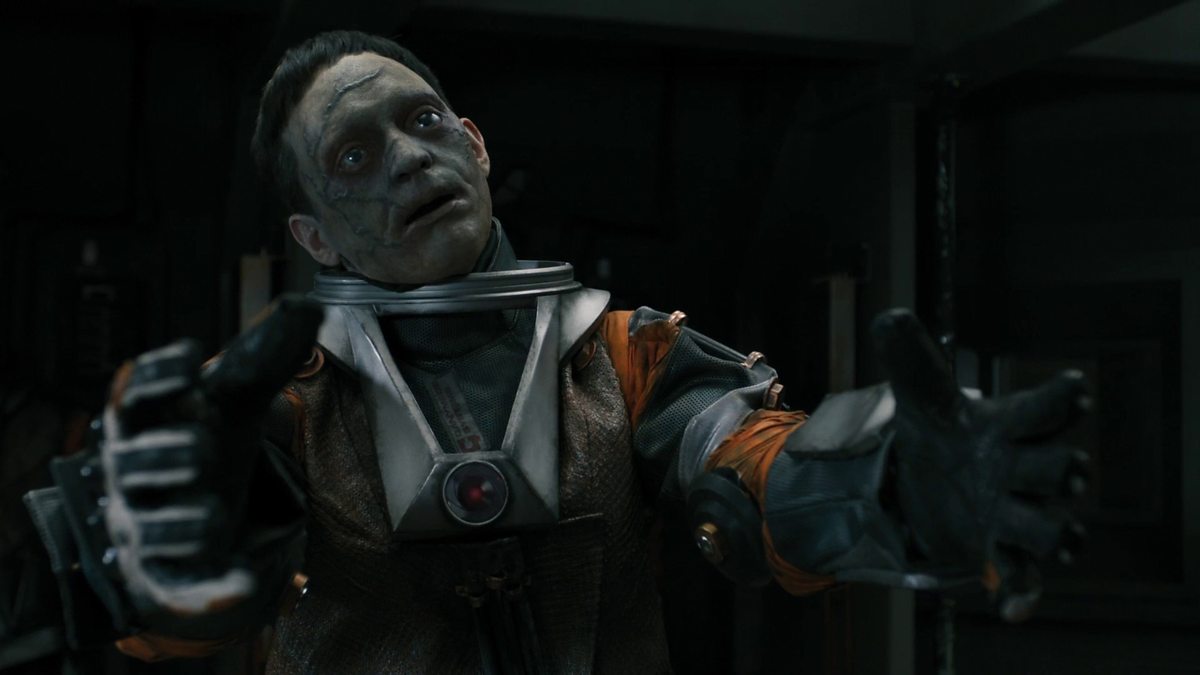Dust Then Becomes Solid Entity (Extremis)
 |
| Don’t worry, Doctor, I’m sure the Chibnall era will be fine |
It’s May 20th, 2017. Luis Fonsi, Daddy Yankee, and Justin Bieber remain at number one with “Despacito.” J Hus, Ed Sheeran, Shawn Mendes, Clean Bandit, and French Montana also chart, the latter presumably introducing enough consumer confusion to explain Miley Cyrus being stuck at #11. In news, Chelsea Manning is released from prison. It emerges just how bad Trump’s firing of James Comey was, resulting in the appointment of former FBI director Robert Mueller as a special counsel to investigate Russia’s interference in the election. Trump makes his first foreign visit as President, to Saudi Arabia, leading to that low key amazing supervillain photo of Trump, the king of Saudi Arabia, and Egyptian President Abdel Fattah el-Sisi all touching that glowing white globe.
On television, meanwhile, Extremis. Let’s set aside, for a moment, the monks arc as a whole; there’s time enough to talk about what could have been, what was, and how that happened. Contrary to the greatest moment of Jack’s podcasting career, Extremis is too interesting for that. That said, the monk arc hangs over it in that there is no way to talk about Extremis without talking about failure. In many regards, Moffat set this story up for failure from the moment of its promotion, describing it as a weird experimental piece in the vein of Listen and Heaven Sent, which is to say holding it up to a standard that one doesn’t need the rest of the fingers on your hand to count off the other stories to meet. Extremis is done no favors by being the successor story to these when it is, in reality, a slightly hasty hodgepodge that’s trying to do the Missy reveal and set up the monks arc without necessarily having a clear idea why these two things to together.
The result is decidedly one of Moffat’s failures. But while that list contains cringeworthy banalities like The Doctor, The Widow, and the Wardrobe, it also contains things like The Beast Below that, while they might not quite come together as episodes of television, are still fascinating and basically delightful. Extremis falls into the later camp: an episode that does not belong anywhere near anyone’s lists of Moffat’s greatest triumphs, but that is nevertheless profoundly satisfying to delve into.
The thing that makes Extremis fascinating and compelling is that for all its hot mess tendencies, it’s one of those Doctor Who stories that are remarkably plugged into the zeitgeist. Simulationism is the sort of fun science idea you write about in 2017 the same way you did black holes in 1973. Add reincarnation on computers, escaping AIs, and ideas that drive you mad and you have one of the most shockingly on the nose Doctor Who episodes ever, at least from the perspective of the bitch who wrote Neoreaction a Basilisk.
To some extent, despite literally writing the book on it, I’m in no position to explain why these ideas go together.…






 I want to start with an update to
I want to start with an update to  It’s January 15th, 2017. Clean Bandit have been knocked off of number one by the dawn of the Sheeraning, as Ed Sheeran’s “Shape of You” and “Castle on the Hill” debut at number one and two respectively, heralds of his forthcoming album that will, on its release in mid-March, lead to Sheeran occupying 14 of the top 15 slots in an absolutely unprecedented (and before the streaming era impossible ) turn of events. JP Cooper, Starley, and Jax Jones featuring Raye also chart.
It’s January 15th, 2017. Clean Bandit have been knocked off of number one by the dawn of the Sheeraning, as Ed Sheeran’s “Shape of You” and “Castle on the Hill” debut at number one and two respectively, heralds of his forthcoming album that will, on its release in mid-March, lead to Sheeran occupying 14 of the top 15 slots in an absolutely unprecedented (and before the streaming era impossible ) turn of events. JP Cooper, Starley, and Jax Jones featuring Raye also chart.